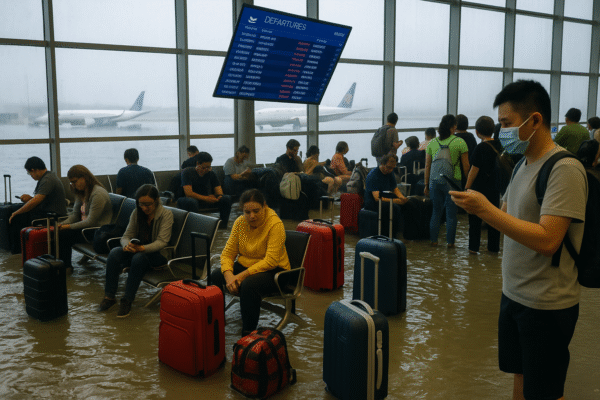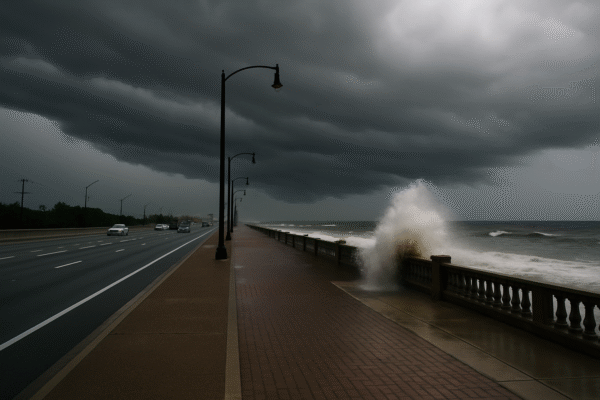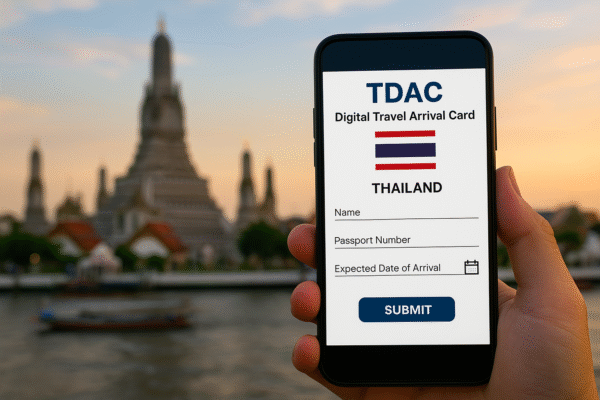Thailand has updated its entry protocol for all international visitors, including tourists from the United Arab Emirates (UAE), with the introduction of the Digital Travel Arrival Card (TDAC). Launched on May 1, 2025, the TDAC replaces the traditional paper-based TM6 immigration form. As part of its modernisation of border control, the Thai government has made it compulsory for all incoming foreign travellers, whether visa-free or visa-required, to submit this digital document before arrival.
This move coincides with growing regional security tensions along Thailand’s border with Cambodia, prompting governments such as the UK, US, and Australia to issue updated travel advisories. These cautionary statements recommend avoiding non-essential travel within specific provinces close to the border due to reported instability and safety risks.
What UAE Tourists Need to Know About the TDAC
The Royal Thai Embassy in Abu Dhabi and the Thai Immigration Bureau have issued clear instructions regarding the TDAC system. The application must be completed online, and the process includes uploading travel and personal details, similar to the previous TM6 form but digitised for efficiency and border security purposes.
Key TDAC Details for UAE Residents and Tourists:
- Mandatory for all foreign arrivals, including UAE citizens and residents
- Must be submitted within 72 hours before arriving in Thailand
- Group submissions permitted for families or corporate groups
- Upon completion, a digital confirmation slip will be issued and must be shown to immigration authorities
Travellers are strongly advised to complete the TDAC in advance to avoid delays at airports or points of entry. Authorities have also clarified that the form is required even for tourists entering Thailand under visa-exemption arrangements, such as UAE passport holders eligible for 30-day stays.
Rising Security Risks at the Thai-Cambodian Border
While Thailand continues to welcome millions of tourists, the government urges increased vigilance near its eastern borders. Foreign governments, including the British Foreign Office, U.S. Department of State, and Australian Department of Foreign Affairs, have flagged potential dangers along the Thai-Cambodian frontier.
These advisories cite armed clashes, military tension, and unexploded landmines in areas extending up to 50 kilometres from the border. Though the Thai government has not issued an internal alert, foreign missions stress the importance of avoiding these zones.
High-Risk Provinces Near the Cambodian Border:
- Surin
- Si Sa Ket
- Ubon Ratchathani
- Buri Ram
- Sa Kaeo
- Chanthaburi
- Mainland Trat
Some of these regions have a history of military conflict and may still contain unexploded ordnance. Localised tensions between Thai and Cambodian forces, particularly in disputed territory, remain unresolved.
Travel Safety in Urban and Tourist Areas
Beyond border zones, UAE tourists are also encouraged to be alert in major cities and high-traffic tourist spots, including:
- Bangkok
- Phuket
- Chiang Mai
- Pattaya
- Koh Samui
While no specific incidents have been reported in these areas recently, international authorities continue to monitor the potential for terrorism, petty crime, or civil unrest in places where tourists commonly gather.
To remain safe, visitors are encouraged to:
- Avoid large gatherings or demonstrations
- Use official transportation channels
- Monitor news and alerts through the UAE Ministry of Foreign Affairs and the Royal Thai Police
- Register their trip with the UAE embassy for consular support if needed
Travel Preparation Tips for UAE Visitors to Thailand
With both updated entry requirements and regional security concerns in play, proper planning is essential. Here’s how UAE travellers can prepare for a safe, enjoyable trip:
✅ Submit TDAC online 48–72 hours before flying
✅ Keep your TDAC confirmation slip accessible on arrival
✅ Avoid border zones near Cambodia — especially Surin, Si Sa Ket, and Ubon Ratchathani
✅ Use embassy travel advisories as your primary safety source
✅ Stay vigilant in urban tourist hubs
Tourists can also contact the Royal Thai Embassy in Abu Dhabi or Thai Consulate in Dubai for real-time updates, visa information, or documentation assistance.
For more travel news like this, keep reading Global Travel Wire

















